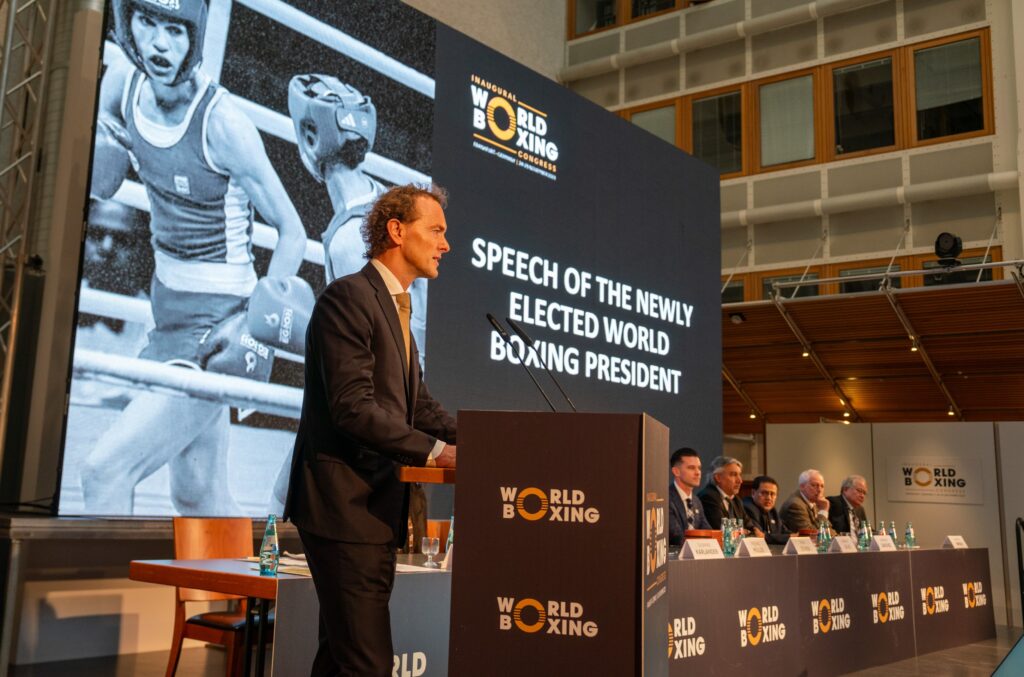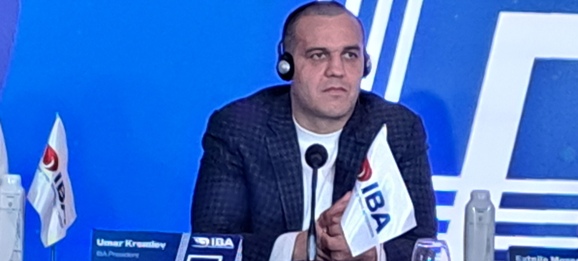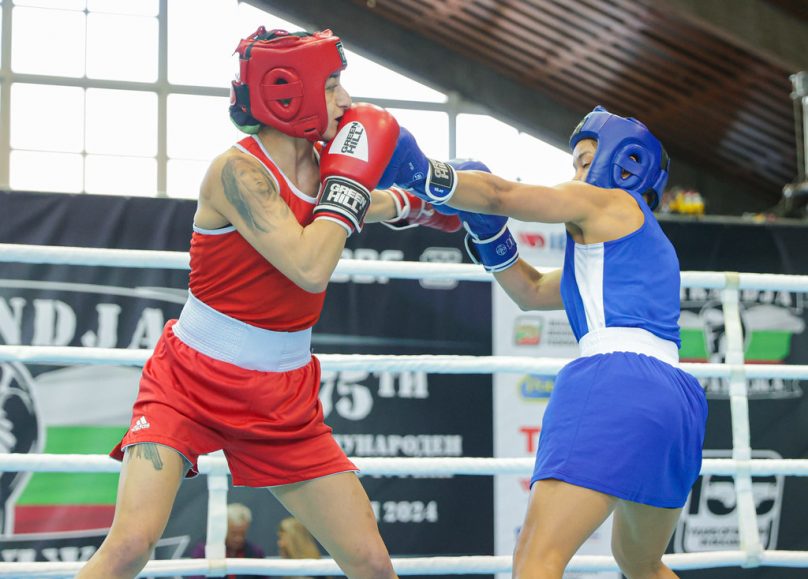Only Boxing Can Save Itself
By Ed Hula
Unless a grand compromise can be reached in the coming months, Olympic boxing is truly on the ropes from a self-inflicted knockout.
The IOC made it clear earlier this month that unless there’s an international federation to handle the sport by early 2025, boxing will not be on the program of the Los Angeles Olympics in 2028. If that happens, there is a strong likelihood boxing will never return to the sports program after appearing in every Olympics since 1920.
Despite being banished by the IOC last year as the sport’s recognized federation, the International Boxing Association shows no sign of remorse or willingness to go along with demands for reform. Corrupt refereeing, financial transparency and governance concerns are among the IOC’s chief worries.

Worried no longer about IBA, the IOC has left it up to the sport to find a way to organize a federation that meets its standards if it is to have any hope of remaining on the Olympic program.
In addition to addressing governance and integrity issues, the new federation must be able to stage world championships and other events for athletes to qualify for the Olympics. Since the federation was initially suspended in 2019, Olympic competition has been managed by an IOC task force. But after handling Tokyo and now Paris, IOC Pres. Thomas Bach says the organization’s patience is at an end. It’s time for boxing to put up or shut up.
Right now the situation seems bleak.
The fledgling World Boxing, formed late last year, aims to be that new federation for the Olympics. The group includes sporting powers such as the U.S., Great Britain, France and Australia, along with another two dozen national federations that abandoned the IBA following its disbarment. World Boxing is led by Boris van der Vorst, head of the Dutch Federation. He tried to challenge Kremlev for the IBA presidency but was ruled ineligible two days before the vote. Kremlev, the only candidate on the ballot, won. The federation then rejected an order from the Court of Arbitration for Sport to hold another election. Van der Vorst abandoned IBA to launch World Boxing as an IOC- worthy alternative.
While World Boxing speaks to the IOC demands with a strategic plan through the year 2028, it may be stalled in its effort to secure the backing of very many more national federations still aligned with IBA.

Unlike the IBA, World Boxing has no money to dish out. Dozens of federations in Africa and Asia in particular depend upon funding from the IBA. Where the IBA gets that money is not exactly clear. A series of so-called Champions Night bouts in Asia and Europe is generating revenue, but probably nowhere near the $15 million or so from Tokyo and Paris TV revenues the IOC would have allocated to the federation had it not been suspended.
The animus between IBA president Umar Kremlev and Bach is deep and seemingly irreconcilable. Kremlev has hurled insults at the IOC leader and colleagues in Lausanne ever since Kremlev’s controversial election in 2023. Last year he declared the IBA would not “kiss the ass” of the IOC. In a statement last month Kremlev accused Bach and IOC staff of “lining their pockets” and maintaining personal agendas in the battle against IBA.

“Circus management and clown behaviour from Thomas Bach’s camp is apparent; we continue to see this with those disappointing antics, with the IOC hiding their own personal gains to the detriment of others and our boxing community as a whole. IBA remains transparent and will continue to speak up for its loyal members,” says one excerpt of the statement.
World Boxing says national federations that remain loyal to the IBA could spell the end of Olympic boxing.
“Any National Federation or NOC that continues to think its boxers will have an Olympic future elsewhere and without joining World Boxing is making a grave error that will be ruinous for the sport and hugely damaging for its boxers,” says part of the statement issued a few weeks ago when the Court of Arbitration for Sport rejected IBA’s appeal of its IOC expulsion.
“This is an urgent situation and the clock is ticking. The leaders of boxing’s National Federations now have a critically important decision to make and we urge every one of them that cares about boxers and the future of the sport to apply to join and support World Boxing in its efforts to ensure boxing remains at the heart of the Olympic Movement, before it is too late,” says the World Boxing statement.
Kremlev counters that his organization is the only one with the expertise to handle the Olympics.
“The reality and truth are that there is no alternative to the IBA as a governing body neither financially, nor in terms of organization and experience. With their statements, the ruling elite of the IOC constantly interferes in the affairs of the IBA and other international sports federations, violating the principles of its own Olympic Charter, freedom of speech and imposing its own fictitious rules,” says the IBA leader.
It would seem the gulf between the IBA, World Boxing and the IOC could not get any deeper.
“The only way to make peace is to make compromises,” British Prime Minister Winston Churchill once opined.
But in the case of Olympic boxing, nobody seems ready to swallow pride and find a way to compromise for the good of the sport. At a time when sports such as mixed martial arts are growing in popularity, there’s no shortage of candidates to take the place of boxing.
Intransigence instead of compromise on the part of boxing’s leaders will only hasten the sport’s Olympic demise.
So here we are in April, the calendar becoming a bowtied referee standing over a boxer, counting down the seconds – or in this case, months – until a knockout is declared.
He’s got eight more to go before Olympic boxing is down for the count.

